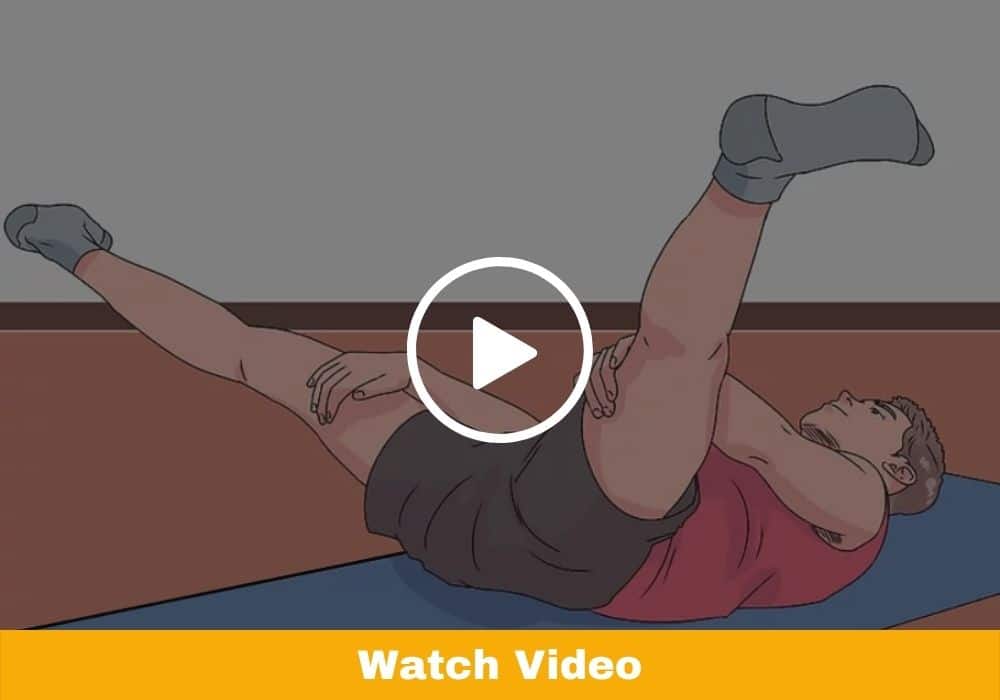If you’re a man over 50, you may have heard of the dreaded “enlarged prostate.” This condition, also known as benign prostatic hyperplasia (BPH), affects about half of all men in this age group and can cause a range of uncomfortable symptoms, such as frequent urination, difficulty urinating, and weak urine flow. In this article, we’ll highlight 10 surprising foods that could be causing your enlarged prostate and offer tips for making healthier dietary choices.
Can Diet Affect Enlarged Prostate?
Before we dive into the list, let’s first address the question of whether diet really matters when it comes to prostate health. The answer, according to research, is a resounding yes. Studies have shown that men who consume a diet high in saturated fat, red meat, and dairy products are more likely to develop BPH and experience worse symptoms than those who follow a more plant-based, low-fat diet. On the other hand, diets rich in fruits, vegetables, whole grains, and healthy fats (such as those found in fish, nuts, and seeds) have been associated with a lower risk of BPH.
10 Foods to Avoid for Enlarged Prostate
With that in mind, let’s take a closer look at some of the foods you should avoid or limit if you have an enlarged prostate.
1. Red Meat
While red meat can be a good source of protein and other nutrients, it can also be high in saturated fat and cholesterol, which can promote inflammation and oxidative stress in the body. In particular, the high levels of arachidonic acid in red meat have been linked to increased prostate cancer risk. To keep your prostate healthy, try to limit your intake of red meat and choose leaner protein sources, such as fish, chicken, tofu, or legumes.
2. Dairy Products
Milk, cheese, and other dairy products are often touted as good sources of calcium and vitamin D, but they may also stimulate the production of hormones that can promote prostate growth. Some studies have found that men who consume high amounts of dairy products are more likely to develop BPH or prostate cancer than those who consume less. If you enjoy dairy products, try switching to low-fat versions or incorporating more plant-based sources of calcium and vitamin D, such as leafy greens, soy milk, or fortified cereals.
3. Caffeine and Alcohol
Coffee, tea, soda, and alcohol can all irritate the bladder and worsen urinary symptoms, such as urgency and frequency. In addition, alcohol can dehydrate the body and make it harder to empty the bladder fully. While you don’t need to give up these beverages completely, it’s a good idea to limit your intake, especially in the evening, to avoid disrupting your sleep and exacerbating your symptoms.
4. Processed Foods
Processed foods, such as packaged snacks, frozen meals, and fast food, are often high in salt, sugar, and unhealthy fats. These additives and preservatives can contribute to inflammation and oxidative stress in the body, which can worsen prostate symptoms over time. To reduce your intake of processed foods, try cooking more meals at home using fresh, whole ingredients, or choosing healthier convenience options, such as pre-cut veggies, hummus, or canned fish.
5. Sugary Drinks
Sodas, sports drinks, and fruit juices are all high in sugar, which can lead to obesity, metabolic dysfunction, and other health problems that can increase your risk of developing prostate issues. Instead of sugary drinks, try drinking water, herbal tea, or unsweetened beverages. If you need a little sweetness, consider adding a small amount of natural sweetener, such as honey or maple syrup.
6. Fried Foods
French fries, fried chicken, and other fried foods may be tasty, but they’re also high in trans fats, which can contribute to inflammation and oxidative stress in the body. To protect your prostate, try cooking with healthier fats, such as olive oil, avocado oil, or coconut oil, and choose cooking methods that don’t involve deep frying, such as baking, roasting, or grilling.
7. Spicy Foods
If you love spicy foods, you may need to cut back a bit to protect your prostate. Spicy foods can irritate the bladder and worsen urinary symptoms, such as urgency and burning. If you can’t imagine giving up spicy foods altogether, try reducing the spiciness of your meals by using milder peppers or adding a dollop of sour cream or yogurt to cool things down.
8. Soy Products
Soy products, such as tofu, soy milk, and tempeh, have been touted as healthy alternatives to meat and dairy, but they may not be the best choice for prostate health. Soy contains phytoestrogens, which can mimic the effects of estrogen in the body and promote prostate growth. While moderate soy intake is generally considered safe, it’s a good idea to avoid consuming large amounts or taking soy supplements.
9. Salt
Salt is a staple ingredient in many dishes, but it can also be a hidden source of health problems. Excess salt intake can lead to hypertension and fluid retention, which can worsen urinary symptoms and put stress on the kidneys. To reduce your salt intake, try cooking with herbs and spices instead of salt, using fresh or frozen vegetables instead of canned, and avoiding salty snacks and processed foods.
10. Artificial Sweeteners
Artificial sweeteners, such as aspartame, sucralose, and saccharin, have been marketed as low-calorie alternatives to sugar, but they may not be as benign as they seem. Some studies have suggested that artificial sweeteners can disrupt the gut microbiome and contribute to metabolic dysfunction, which are risk factors for prostate problems. To avoid artificial sweeteners, try using natural sweeteners, such as honey or maple syrup, or cutting back on sweeteners altogether.
How can you still eat your favorite foods and shrink swollen prostate?
Can a simple and natural method put an end to “years of pain and suffering” and ease even the most stubborn cases of enlarged prostate?
According to a top US surgeon – this new method may change the lives of people who suffer from enlarged prostate.
In fact, it already helped more than 13,000 Americans to eliminate 85%-99% of their discomfort.
“It’s crucial for people to take action and address the real, root cause. Enlarged Prostate can lead to more dangers than people realize… It’s not just discomfort, in some cases, it can be a real danger”
Now, for the first time ever, he created a short video explaining the true root cause of enlarged prostate, plus, what you can do about it right away (step by step) before it continues eating away at your health more than it already has.
So far, the reviews have been stunning, with some viewers saying they saw major improvement in a matter of weeks or even days.



